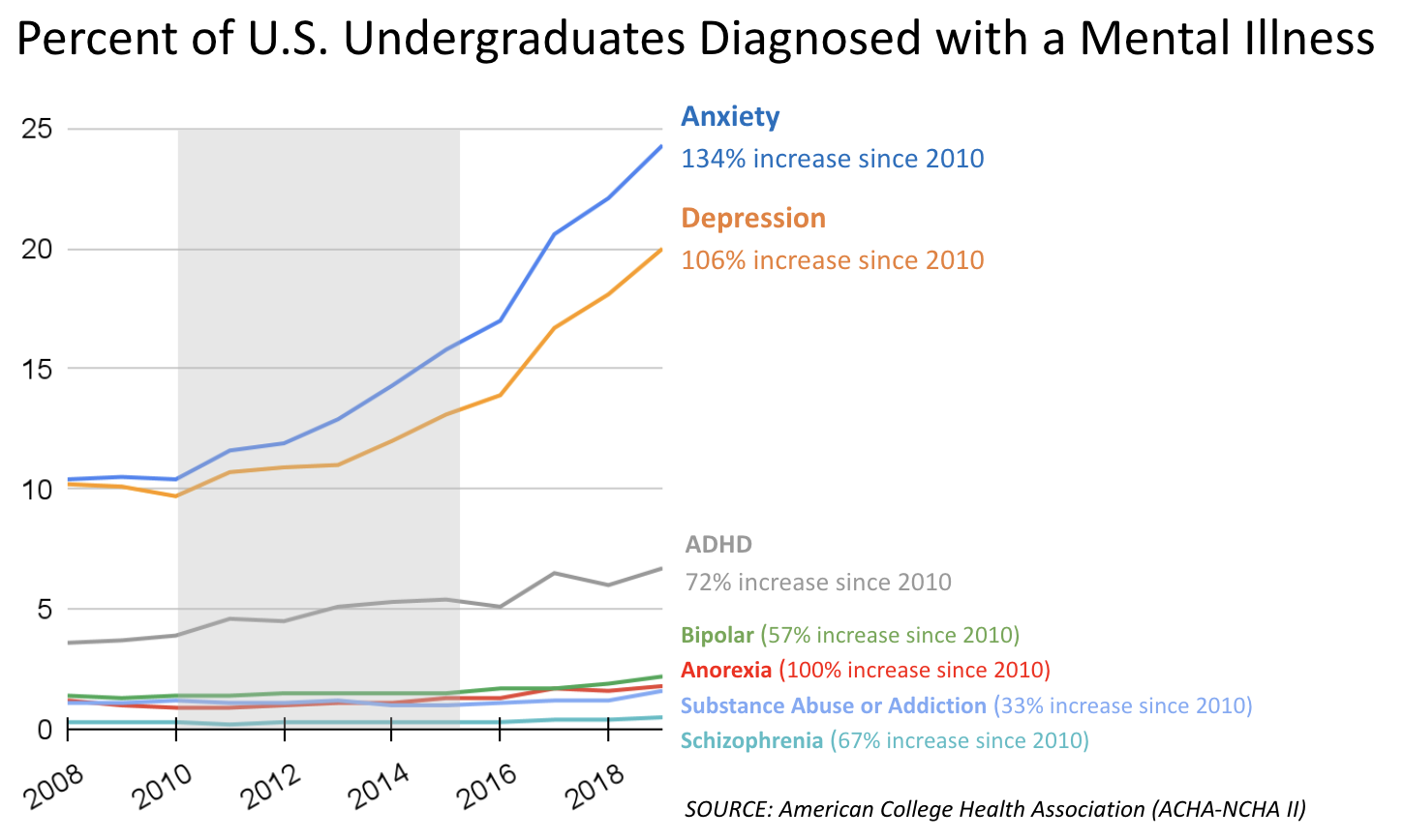In the summer of 2022, I was working on a book project — Life After Babel: Adapting to a world we can no longer share — about how smartphones and social media rewired many societies in the 2010s, creating conditions that amplify the long-known weaknesses of democracy. The first chapter was about the impact of social media on kids, who were the “canaries in the coal mine,” revealing early signs that something was going wrong. When adolescents’ social lives moved onto smartphones and social media platforms, anxiety and depression surged among them. The rest of the book was going to focus on what social media had done to liberal democracies.
I quickly realized that the rapid decline of adolescent mental health could not be explained in one chapter—it needed a book of its own. So, The Anxious Generation is Volume 1, in a sense, of the larger Babel project. The book will be published March 26, 2024.
I begin The Anxious Generation by examining adolescent mental health trends. What happened to young people in the early 2010s that triggered the surge of anxiety and depression around 2012?

What happened to young people in the early 2010s?
The Anxious Generation offers an explanation by telling two stories. The first is about the decline of the play-based childhood, which began in the 1980s and accelerated in the ‘90s. All mammals need free play, and lots of it, to wire up their brains during childhood to prepare them for adulthood. But many parents in Anglo countries began to reduce children’s access to unsupervised outdoor free play out of media-fueled fears for their safety, even though the “real world” was becoming increasingly safe in the 1990s. The loss of free play and the rise of continual adult supervision deprived children of what they needed most to overcome the normal fears and anxieties of childhood: the chance to explore, test and expand their limits, build close friendships through shared adventure, and learn how to judge risks for themselves.
The second story is about the rise of the phone-based childhood, which began in the late 2000s and accelerated in the early 2010s. This was precisely the period during which adolescents traded in their flip phones for smartphones, which were loaded with social media platforms supported by the new high-speed internet and unlimited data plans.
The confluence of these two stories in the years between 2010 and 2015 is what I call the “Great Rewiring of Childhood.” Few of us understood what was happening in children’s virtual worlds and we lacked the knowledge to protect them from tech companies that had designed their products to be addictive.
For this reason, we ended up overprotecting children in the real world while underprotecting them in the virtual world.





